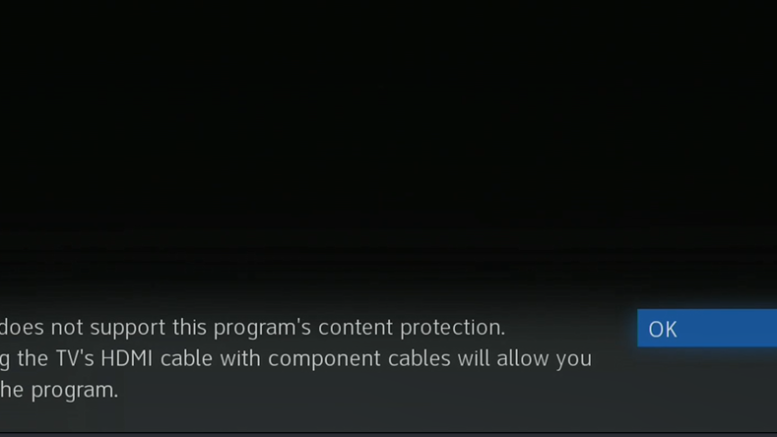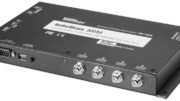HDCP. Even the name is a source of confusion. It’s yesterday’s answer to today’s problems, and yet we’re basically stuck with it.
HDCP is…
“High-bandwidth digital content protection.” For years I thought the HD part stood for high-definition, and I think most people did. But for some reason it doesn’t. Did the organization set out to trick me? Probably not. I think they just traded on what people would expect.
Whatever you call it, HDCP is the system that keeps content providers happy so that companies like DIRECTV and DISH can keep giving customers HD and 4K content. It’s an insurance policy that makes it practically impossible for regular folks to get direct digital copies of the stuff on their DVRs.
How HDCP works
Even though the HDMI jack on your stuff looks the same on everything, HDCP requires that the devices are separated out into one of three types.
- A source provides the content. Examples of this type of device include satellite TV receivers, streaming boxes, and computers.
- A sink (yes that’s what they call it) is the device that gets the content. Essentially this is a TV.
- A repeater is something in the middle that reprocesses the signal or passes it on to a sink. The perfect example here is your A/V receiver. All the HDMI cables come into it and then a cable goes out to a TV.
In some cases a source can be a sink, such as a tablet or phone. In some cases a sink can also be a repeater, such as when a TV supports ARC.
When a source is connected to a sink (yes I really hate that they call it that) the two devices talk. If there’s a repeater in the middle, it talks too. The devices share encryption keys so that the data that goes up the HDMI cable can actually be displayed. They also share other information like what kind of devices they are, and any new information about “discredited” devices.
This sort of conversation takes place at least every two seconds so it’s impossible to connect a cable to one thing, get the encryption keys, and connect it to another thing.
How HDCP is a massive pain
HDCP obviously stops people from pirating content. That’s a good thing because big companies like Disney can’t get even richer if people are stealing their stuff. However it also stops people from getting good digital transfers of TV shows they care about. For example if the local news does a story and interviews your kid, you can’t just record the show and keep it forever.
HDCP has been responsible for higher prices for consumer electronics as the software and hardware have developed. Today, that’s really not the case since most home theater stuff is dirt cheap. But the cost over the past decade has to be staggering. There’s really no data that shows it, though.
Can you defeat HDCP?
For regular folks, defeating HDCP is pretty hard. You can connect devices using component video, if that’s an option. Increasingly, it isn’t. Manufacturers have been all too happy to get rid of component connections in favor of the easy and convenient HDMI cable.
However, “pretty hard” does not mean impossible and there are plenty of devices that will remove HDCP or take it to a lower level of encryption. They’re out there on web sites you probably don’t visit. Solid Signal doesn’t carry that stuff, because we have a lot of manufacturer relationships that prohibit us from doing it.
There’s also the fact that a lot of content that hides behind HDCP is available on YouTube or other video sharing sites. Someone else stripped the content protection for you, and all you have to do is use a downloader app to get the YouTube video onto your computer.
So is HDCP a massive waste of time?
It’s a gate. It’s just like any other, physical, gate. Gates don’t keep out determined people. If you live in a gated community, it generally just takes a ladder to bypass this simple security measure. But, it’s going to make people think twice before they make that choice. HDCP is the same thing. It stops casual piracy. If you’re really serious about stealing content it’s not going to do much for you. But it is going to stop the average Joe and that in itself probably saves content providers billions of dollars per year.
Will there be a replacement for HDCP?
HDCP 2.x, the second version of HDCP, is actually the replacement. It’s a lot harder to crack than HDCP 1.x, although it’s already been cracked and you can find details if you search. The real replacement is the diverse and constantly evolving encryption in most streaming content. The big boys like Disney and Netflix are always tweaking their security. Because they own the app as well as the content, they can roll out new security measures quickly. Services like that let you download content and keep it for a month or so, but then it expires. This is partially so they can roll out new security measures whenever they want.





